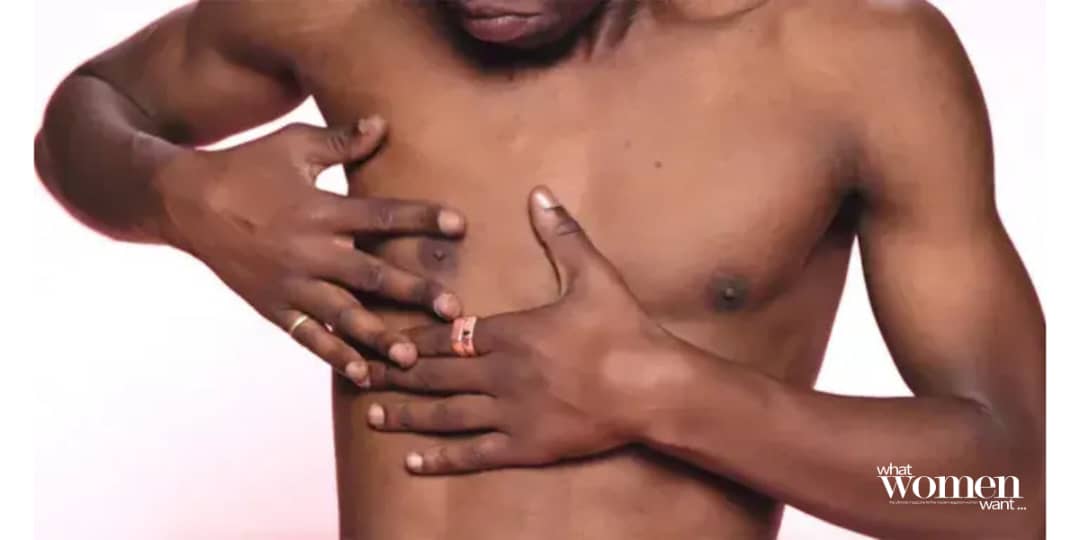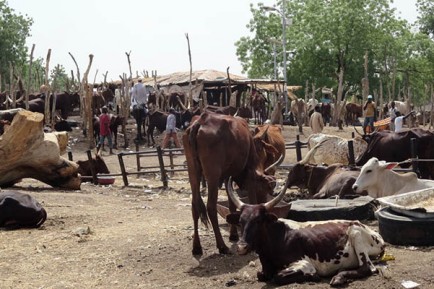Male Breast Cancer: Hidden Killer That Needs to be Nipped
Share

Breast cancer affects both men and women although it is commonly associated with women. Despite its lower frequency in men, the impact of breast cancer can still be significant.
Unfortunately, there are few guidelines for screening and no widespread programmes for male breast cancer awareness and treatment. This lack of attention calls for more awareness on the signs and symptoms in men.
Breast cancer is a deadly disease in which abnormal cells rapidly grow and form tumours. If not treated, the tumours can spread throughout the body and become life-threatening.
In a National Health Service (NHS) study in the United Kingdom, researchers discovered that men often wait 19 months to seek medical care after noticing early symptoms of illness, suggesting that they do not view the condition seriously. Additionally, the strong cultural perception that breast cancer is a “women’s issue” likely contributes to this delay.
In 2020, the International Agency for Research on Cancer reported 28 male breast cancer cases in Zimbabwe, representing 0.9 percent of all new cancer cases in Zimbabwean men.
Men have a 1 in 833 lifetime risk of developing breast cancer.
In 2020, the World Health Organisation (WHO) estimated that 685,000 deaths were caused by breast cancer worldwide. About half of all cases are found in those with no known risk factors aside from gender and age. All countries experience breast cancer, with around 0.5-1 percent of cases occurring in men.
During interviews with various men about breast cancer in men, it was evident that many believe that breast cancer is exclusively a women’s disease and that it does not affect them.
“I hadn’t considered it before. I thought it was a women’s issue only. But the idea of it is frightening. I’ve since learnt that frequent touching of breasts can reduce the risk of lumps or cancer. The same is true for prostate cancer in men: those who are sexually active are less likely to face problems.
“I’m now unsure how to proceed—should men be fondling their breasts often to avoid potential issues? It’s a worrying concept, and difficult to fathom,” said 56-year-old Makaza Hombasha, from the leafy suburb of Borrowdale in Harare.
Cecil Sedeya (20) from Budiriro high-density suburb in Harare, said he had no knowledge of the topic and that he had no breast, but a chest so, “how can I develop breast cancer?” he asked in disbelief.
“We always thought breast cancer was exclusive to women. Could you please educate us on this,” said 40 year old Tapfumanei Dube from Victoria Falls in Matabeleland North Province.
Never Zvikonyaukwa, a 47-year-old man from Harare, did not know much about breast cancer in men. He said that he was familiar with colon and prostate cancer but “not breast cancer in men.’’
Lovemore Makurirofa, Monitoring and Evaluation coordinator at the Cancer Association of Zimbabwe, noted with concern that breast cancer cases are rising among the country’s population.
“In Zimbabwe, breast cancer is also becoming very common, and is the second prevalent cancer among black women after cervical cancer. In 2018, according to the Zimbabwean National Cancer Registry, breast cancer contributed 8 percent to the total incidences of 7841 new cancer cases.
“Additionally, it contributed 7 percent to the total cancer death mortality. These statistics highlight the significance of breast cancer in both the incidence of new cancer cases and cancer-related deaths.”
Makurirofa highlighted that in Zimbabwe, male breast cancer cases are less frequent than female cases, at a ratio of around one man to 100 women. He emphasised that although there are fewer male cases, male breast cancer can be more serious due to men’s tendency to avoid medical attention. Ignoring symptoms can lead to serious physical problems, and can even be fatal, he cautioned.
“Men should be aware that they can develop breast cancer. They should examine their chest area and breast regularly for any anomalies, and seek medical help if they experience pain.
“During Breast Cancer Awareness Month in October (and on a regular basis), we encourage men to self-examine their breasts for any abnormalities. If pain is experienced, they should not dismiss it as a result of gym or home activities; instead, they should accept a diagnosis,’’ said Makurirofa.
He also advised: “We are aiming to reduce the stigma around cancer by increasing awareness in the community via social media.’’
A medical doctor at Mpilo Central Hospital in Bulawayo, the country’s second largest city, Dr Misheck Ruwende said breast cancer is a serious illness that can develop rapidly with no treatment. To prevent its progression regardless of gender, he said any warning signs need prompt medical attention.
“Breast cancer in males is there though quite rare but it’s there. One percent of people who have breast cancer are men and South Africa is the country with most number of male cases of breast cancer and is just our neighbour. Remember, we usually share diseases with South Africa.
“There are people who are at higher risk of developing male breast cancer for example age – most cases occur after 40 years, someone with high amount of female hormones called oestrogen in the body, overweight individuals, family history of breast cancer, liver disease and also someone who will have gone under cancer treatment around the chest area.”
According to Dr. Ruwende, treatment for men follows the same protocols as those for women, and both men and women undergo the same tests for investigating breast changes. He points out that men are far more likely to be diagnosed later, with advanced-stage disease, despite being a small percentage of cases.
Breast cancer is a global health concern, affecting millions of women annually. However, it is crucial to note that men can also be susceptible to this disease.
By staying informed about the symptoms and being proactive in self-examination, men can play a vital role in early detection and treatment. With increased awareness and open discussions on breast health, people can work together to reduce the impact of breast cancer in both men and women worldwide.
It is important to prioritise own health and encourage others to do the same, ensuring a future where breast cancer is both preventable and treatable.








